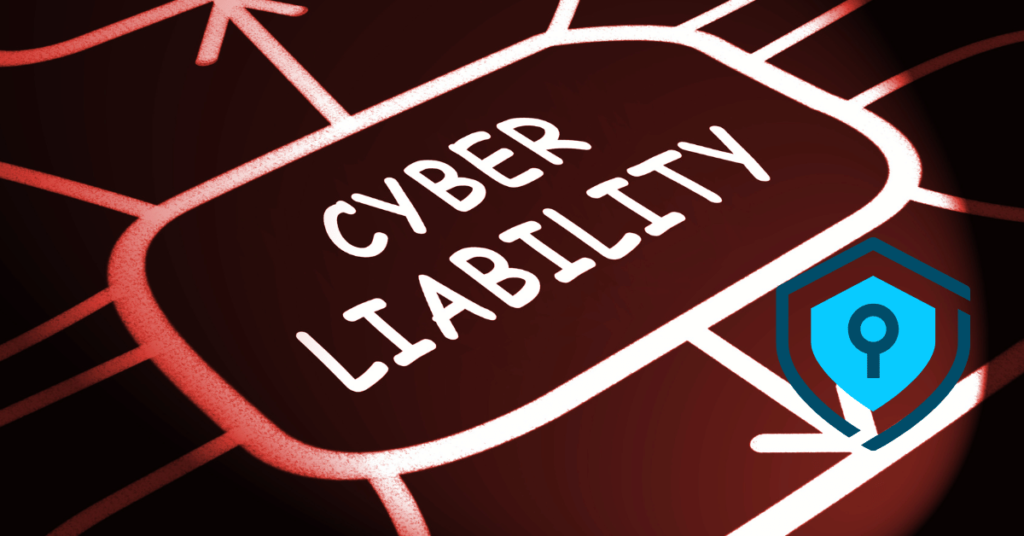The shift to remote work has fundamentally changed the way businesses operate, but it has also introduced new cybersecurity challenges. Remote-only companies often rely heavily on digital tools and cloud-based platforms, making them particularly vulnerable to cyber threats like data breaches, phishing, and ransomware. Cyber liability insurance specifically designed for remote-only businesses offers essential protection, covering potential financial and legal liabilities. In this guide, we’ll discuss the unique risks remote companies face and the top insurance options available to address these risks.
Why Remote-Only Companies Need Cyber Liability Insurance
For remote-only companies, the traditional network security measures are often insufficient. With employees accessing company data from various devices and locations, maintaining secure access and data protection becomes challenging. Cyber liability insurance helps remote companies mitigate these risks by providing financial support for costs associated with:
- Data Breaches: Covers costs related to notifying affected individuals, credit monitoring, and legal fees.
- Ransomware Attacks: Assists with the expenses related to ransomware negotiations, data recovery, and system restoration.
- Legal Liability: Protects against lawsuits from clients or third parties impacted by a security incident.
- Business Interruption: Compensates for lost revenue if a cyber incident halts operations temporarily.
Key Features to Look for in Cyber Liability Insurance for Remote-Only Companies
When selecting a cyber liability policy for a remote-only business, it’s important to consider:
- Flexible Coverage: Ensure the policy includes coverage for all remote working scenarios, including home offices, co-working spaces, and other offsite locations.
- Cloud and SaaS Protection: Many remote-only companies rely on cloud services, so look for policies covering data breaches and other incidents specific to cloud-based platforms.
- Social Engineering Coverage: As phishing and other social engineering attacks are more common with remote work, having coverage for these threats is essential.
- Data Recovery and Forensics: Policies that include data recovery support and forensic investigation can help minimize losses and identify vulnerabilities.
Top Cyber Liability Insurance Providers for Remote-Only Companies
1. AIG CyberEdge®
- Overview: AIG’s CyberEdge policy offers robust coverage tailored to remote and hybrid work environments. It includes incident response, ransomware support, and business interruption protection.
- Benefits: Provides 24/7 access to cybersecurity experts, extensive risk assessment tools, and flexible coverage options for remote work.
- Ideal For: Remote-only companies needing comprehensive coverage for cloud platforms and social engineering risks.
2. Chubb Cyber ERM
- Overview: Chubb’s Cyber ERM offers coverage for digital asset protection, financial fraud, and regulatory compliance, all crucial for remote teams.
- Benefits: Includes support for incident response, with coverage for data recovery and legal fees in the event of a breach.
- Ideal For: Remote businesses that require extensive regulatory compliance and fraud protection.
3. Hiscox CyberClear
- Overview: Hiscox CyberClear provides tailored policies for small and remote-only businesses, with a focus on data breaches and ransomware attacks.
- Benefits: Offers comprehensive incident response services and coverage for cloud data security, including data recovery and business interruption.
- Ideal For: Small to medium-sized remote businesses that require specialized coverage for cloud data and phishing attacks.
4. Beazley Breach Response (BBR)
- Overview: Beazley is known for its incident response capabilities, making it ideal for remote teams dealing with sensitive client data.
- Benefits: Includes coverage for legal costs, forensic investigations, and client notifications following a breach.
- Ideal For: Remote companies handling sensitive data, such as client or financial information, needing rapid response capabilities.
5. Travelers CyberRisk
- Overview: Travelers CyberRisk policy includes coverage for digital asset loss, regulatory investigations, and ransomware response, with support for remote-access security needs.
- Benefits: Provides access to a 24/7 claims hotline and a network of cybersecurity experts to assist with incidents.
- Ideal For: Remote-only businesses looking for affordable cyber liability options with strong regulatory support.
Best Practices for Remote Companies to Reduce Cyber Risks
While cyber liability insurance offers essential financial protection, implementing cybersecurity best practices can significantly reduce the likelihood of an incident. Consider these practices:
- Implement Multi-Factor Authentication (MFA): MFA adds an additional layer of security by requiring users to verify their identity beyond just a password.
- Use VPNs for Remote Access: Virtual Private Networks (VPNs) provide secure access to company data, especially when employees are working from public or unsecured networks.
- Regularly Update Software and Security Patches: Ensure all software and devices are updated to protect against vulnerabilities that could be exploited by attackers.
- Educate Employees on Phishing and Social Engineering: Regular training can help employees identify and avoid phishing scams, a common threat to remote workforces.
- Secure Devices with Endpoint Security Solutions: Using endpoint protection software on employee devices can help detect and prevent malicious activity.
FAQs
What types of cyber risks are remote-only companies most vulnerable to?
- Remote-only companies are particularly vulnerable to phishing, ransomware, and data breaches, as employees often access sensitive data from different networks and devices, increasing exposure.
Does cyber liability insurance cover work-from-home risks?
- Yes, many cyber liability policies include coverage for remote work risks. It’s essential to choose a policy that specifically accounts for offsite work scenarios and remote-access vulnerabilities.
Can cyber insurance protect against employee mistakes?
- Yes, cyber insurance typically covers incidents caused by employee errors, such as unintentional data breaches or security misconfigurations. Some policies also provide resources for employee training to reduce these risks.
Are cloud-based services covered under cyber liability insurance?
- Many cyber liability policies cover incidents involving cloud-based platforms, as they are widely used by remote companies. Be sure to check that your policy includes protection for data stored on and accessed from cloud services.
How can a remote-only company choose the best cyber insurance provider?
- To find the best provider, consider the specific risks associated with remote work, like data privacy, device security, and phishing. Look for companies with policies that offer cloud and social engineering coverage, as well as incident response support.
Conclusion
Cyber liability insurance is essential for remote-only companies as it offers vital financial protection and peace of mind. Companies like AIG, Chubb, and Beazley provide tailored options to address the unique cybersecurity challenges that remote businesses face. By selecting a policy with the right coverage features and implementing cybersecurity best practices, remote-only companies can protect themselves from potential cyber incidents and ensure continuity in an increasingly digital workspace.
So that was all about this article. If you have any further questions feel free to comment down below!




